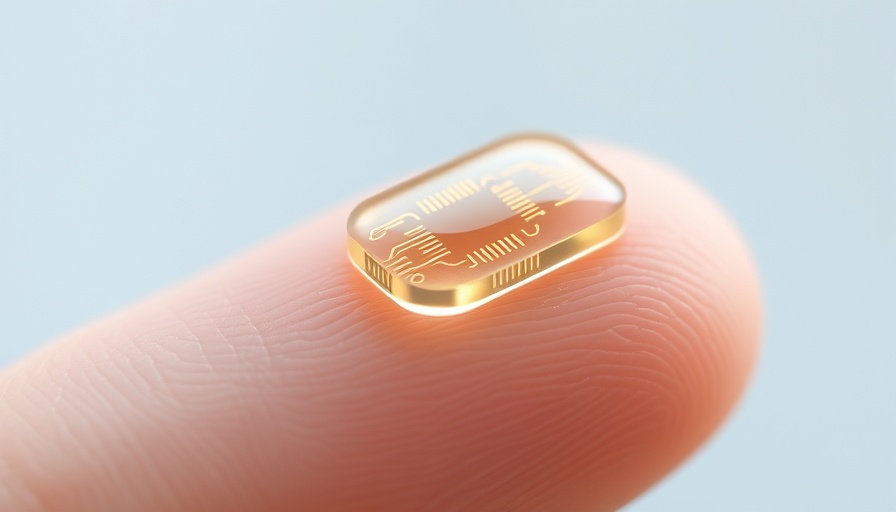
Revolutionizing Brain Health: Introducing Scar-Free Implants for the Elderly
As we age, the health of our brain becomes increasingly important. It is well-known that traumatic brain injuries can range from mild to severe, leaving many on the sidelines of life. Fortunately, a groundbreaking advancement in medical technology promises to change that. Axoft Inc., a Harvard startup, is pushing the boundaries of neurotechnology by developing flexible brain implants that don’t leave scars. This innovation is particularly exciting for the elderly population, providing hope for improved assessments and treatments for brain injuries.
Understanding the Challenges of Conventional Neural Probes
Traditionally, neural probes have been rigid devices inserted into the brain to measure electrical activity. While they provide highly accurate data, the materials used can damage the delicate brain tissue – think of them as razor blades in gel. This damage leads to scar tissue that inhibits the probes’ efficacy, making them less reliable for ongoing monitoring. Moreover, the more sensors added to these probes (which are crucial for collecting comprehensive data), the more rigid and damaging they become, creating a troubling cycle for patients needing long-term oversight.
Enter Axoft: Changing the Game with Soft Materials
The team at Axoft recognized the urgency for an innovative solution. The brain needs devices that are not only flexible but also capable of high performance. Paul Le Floch, co-founder and CEO of Axoft, along with his collaborators, developed a material called Fleuron. This remarkable substance is thousands to millions of times softer than materials used in traditional probes, allowing for insertion without harming surrounding tissue.
Combining biomechanical compatibility and sophisticated electronics, Fleuron enables the integration of over 1,000 sensors into a single implant. This capacity fosters significant potential for improved monitoring of brain activity, which can lead to timely interventions and better health outcomes.
The Importance of Non-Invasive Alternatives for Seniors
For seniors, who may face higher risks of strokes, dementia, and other neurological issues, the idea of invasive procedures can be daunting. With soft brain implants, patients could avoid the trauma associated with conventional implants. This innovation stands to alleviate fears and allow for better assessments of neural conditions.
Moreover, understanding brain functionality can significantly affect treatment options. Clinicians utilizing these new technology solutions can track a patient’s state precisely—whether they are conscious or recovering from an injury. This capability directly influences the quality of care and decision-making processes surrounding treatment protocols.
Future Predictions: What Lies Ahead for Neurotechnology?
The prospects for soft neural probes is not limited to injury-related interventions. As research progresses, Axoft's technology could revolutionize treatment for various age-related neurological diseases. Elderly and retired individuals in particular stand to gain substantially from continuous monitoring and tailored therapies emerging from this technology.
In fact, advancements in neurotechnology could lead to breakthroughs in understanding dementia and Alzheimer’s disease, illnesses that affect countless seniors. Comfortable, effective brain monitoring could result in faster diagnoses, less invasive treatments, and ultimately a better quality of life.
Taking Control of Your Brain Health
For the elderly and their caregivers, such innovations symbolize a critical shift in how brain health can be managed. It serves as a reminder of the importance of seeking information and staying informed about available technologies that can enhance life in retirement. Equipping oneself with knowledge about advancing health technologies can empower seniors to make proactive health decisions.
While embracing these new medical technologies, it is important to stay informed about financial plans that support ongoing care. Strategies such as smart money habits, tax-efficient income options, and pre-retirement financial checklists play a crucial role in supporting health care needs during retirement.
As we look towards the future, innovations like Axoft's soft brain implants are a beacon of hope for healthier aging. They represent not only progress in medical technology but also the potential for an enriched, empowered life.
In an age where advancements in health technology are continuously evolving, it's vital to engage with trusted financial consultants who can guide you through financial decisions that complement your health journey. Don’t hesitate to reach out for financial planning assistance that suits your retirement needs.
 Add Row
Add Row  Add
Add 




Write A Comment